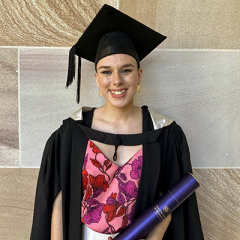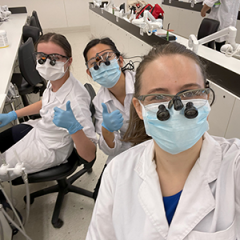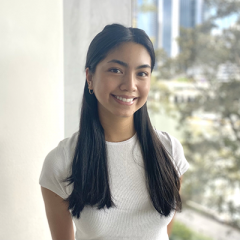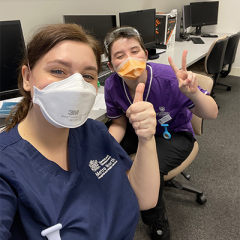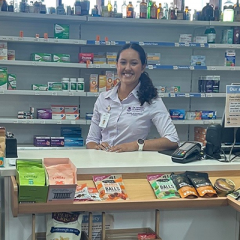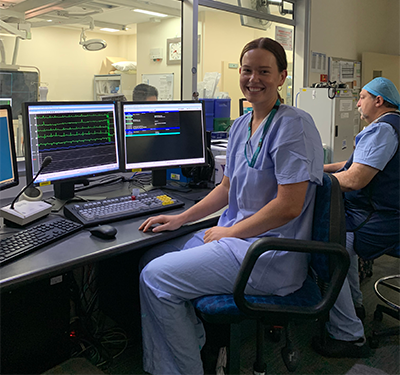
Bachelor of Exercise and Sport Sciences (Honours) graduate
What inspired you to study Exercise and Sport Sciences at UQ?
I have always been interested in how the human body works and am passionate about physical activity and sport. I knew that this program covered a broad range of topics such as anatomy, biomechanics and physiology which was important to me as when I enrolled in the program, I wasn’t entirely sure what field I wanted to work in. UQ also has a great reputation as it is ranked 1st in Australia and 2nd in the world for sports-related subjects.
What has been your most memorable moment at UQ?
In my fourth year as part of my Honours project, I was fortunate enough to work with members from the UQ ParaSTART program. I spent the semester working with one of the Para athletes in the program who has severe cerebral palsy, assisting them with their technique for frame running. I found it really rewarding to have hands on experience working with the athlete as well as other exercise physiologists and physiotherapists. I was able to work collaboratively with the ParaSTART team to design and implement a pilot study.
How did you manage to balance your study, work and other extracurricular activities?
I always tried to attend my lectures in person so that I didn’t fall behind in content and I would set checklists with things that I needed to achieve each day. In my time at university, I learnt how to prioritise tasks, and I found doing a bit of study every day was a better way for me to work rather than trying to do it all at once. Prioritising tasks meant that I still had enough time to exercise, work and catch up with friends.
What drove you to become such a high achiever?
I have always been internally motivated to do well in my studies and found that when you enjoy what you are learning it is easier to stay motivated. I lived at Cromwell College for three years and found that living with other university students helped with my motivation as I was able to study with other people and we would all support each other.
Would you like to share any major obstacles or hardships you have overcome throughout your studies?
My first few years at university were interrupted by COVID-19 whereby I had to study online under lockdown conditions. I had to adapt very quickly to studying completely online and it was difficult to not have the social interaction that comes with attending classes in person. This experience however made me more appreciative of being able to attend my practical classes and tutorials in person once lockdown restrictions were lifted.
What are you most passionate about?
I am passionate about helping other people to achieve better health outcomes. I have been able to work with healthy populations as well as athletes and implement exercise programs to best suit their needs. More recently, I have completed placement at the Princess Alexandra Hospital whereby I have worked as part of the Cardiac Diagnostics Unit. In this role I have seen the important position a cardiac physiologist plays as a part of an inter-professional health team to assist those with cardiac issues. I am passionate about giving people the best level of care that they require and am looking forward to continuing my experience in cardiac physiology.
What advice would you give future UQ students?
Stay open minded so that you can find what you are passionate about. Before starting this degree I wasn’t sure what I wanted to do once I graduated. Through exposure to an array of different sub-disciplines in exercise, I discovered what I was passionate about, cardiac physiology. Talking to past students, guest lecturers and tutors about what they do for work helps to understand what is involved in the different careers that you can obtain from this degree.
What’s next for you after graduation?
I have just completed over 500 hours of placement as part of the Cardiac Diagnostics Unit at the Princess Alexandra Hospital. I thoroughly enjoyed my time on placement and am seeking employment as a cardiac physiologist whereby I will be responsible for conducting cardiac testing for patients including ECGs, stress tests and haemodynamic monitoring in catheter labs.
Learn more about UQ's Bachelor of Exercise and Sport Sciences (Honours).

